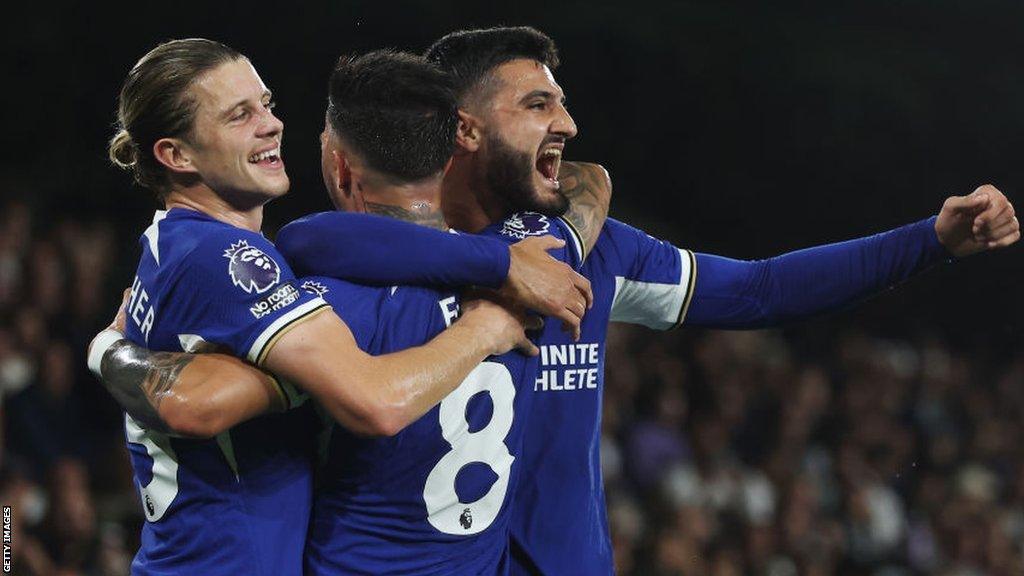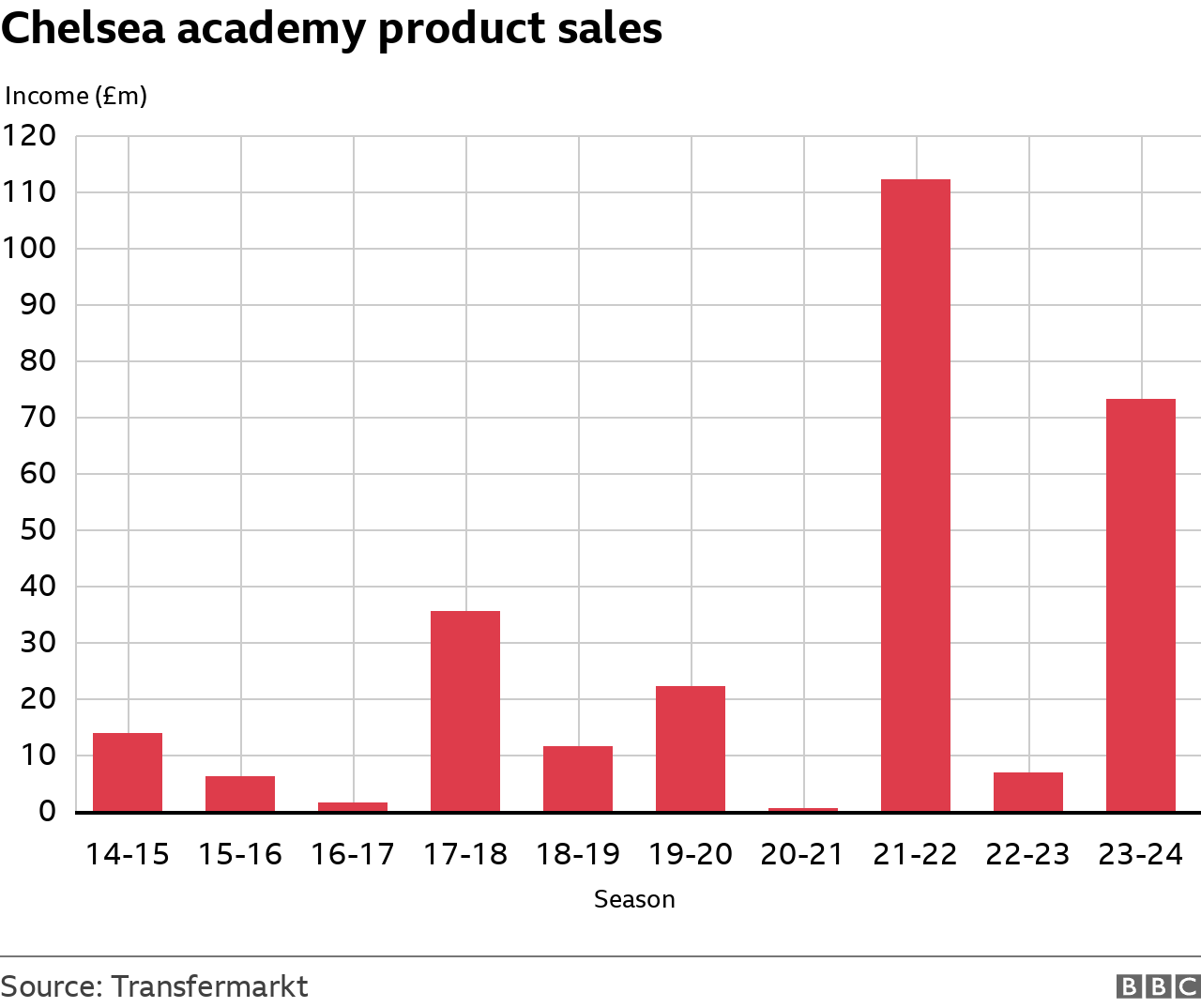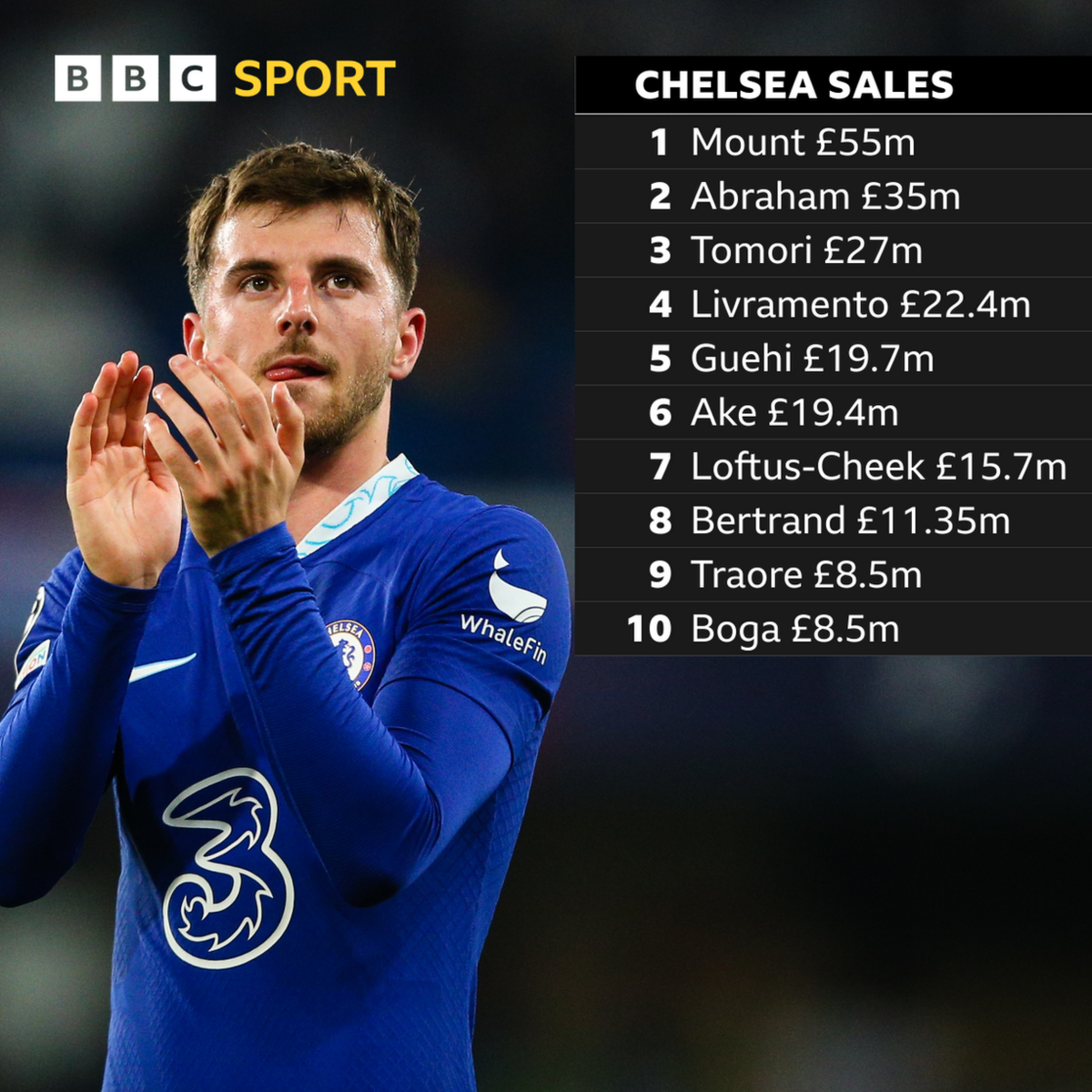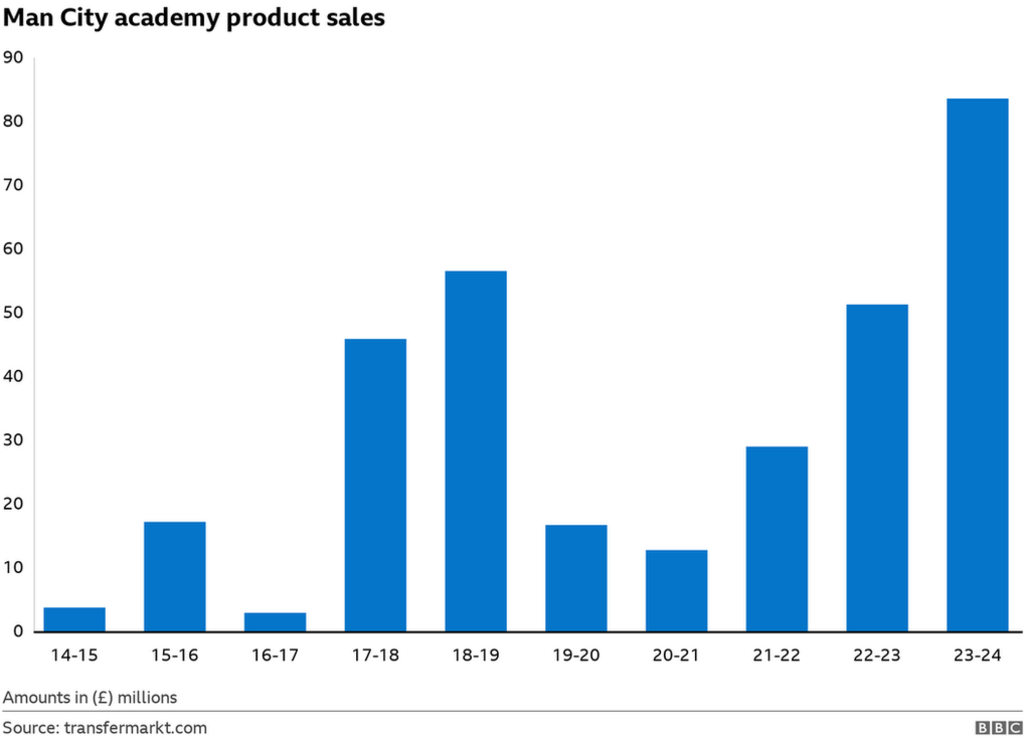Armando Broja: Why clubs are selling homegrown academy players for profit
- Published

BBC Sport understands Chelsea are open to selling both academy graduates Conor Gallagher, left, and Armando Broja, right, at the right price
Chelsea's spending power has dominated the past few transfer windows, but it was the departure of their latest academy graduate Armando Broja - initially on loan to Fulham - which was arguably the most interesting deal of a quiet deadline day.
The Blues are open to selling both Broja and fellow youth product Conor Gallagher at the right price - highlighting an increasing trend of Premier League clubs offloading former academy players.
When clubs sell academy graduates, such as Manchester City's £40m sale of Cole Palmer to Chelsea in the summer, that entire amount goes down as 'pure profit' in their accounts and can help them navigate the top flight's strict profit and sustainability rules.
While fans may be upset at seeing homegrown players leaving, generating cash from academies can allow clubs to keep spending big - and Chelsea and City are among the best in Europe at doing it.
BBC Sport has done a quick breakdown of the numbers to analyse how both clubs have used academy player sales to help power transfer spending.
Chelsea's player 'factory'

Chelsea sold Mason Mount to Manchester United for £55m and Ruben Loftus-Cheek to AC Milan for about £15m in the summer
Since the Todd Boehly-led consortium took control of Chelsea in 2022, the club has spent almost £1bn on players, but a significant amount has been offset by sales to keep them away from the sort of financial charges currently affecting Everton and Nottingham Forest.
From the start of the 2014-15 season Chelsea have sold 39 players that featured in some capacity for their youth teams.
Those academy graduate sales have generated a total of £285m, according to Transfermarkt., external
That works out as about a quarter of Chelsea's total of £1.1bn income from all player sales over the past decade. No club across Europe has earned as much money from total player sales since 2014-15.
That figure is not inclusive of the £28m that Chelsea are set to bank from Newcastle for 19-year-old left back Lewis Hall this summer.
In the year before the Boehly-led takeover, 2021-22, Chelsea made £112m of 'pure profit' from selling former-academy players.

Mason Mount's £55m move to Manchester United is Chelsea's most expensive sale of an academy player
City driving prices on lesser-known talent
Palmer's move from Man City to Chelsea raised eyebrows last August - a player who had been reared by City since the age of eight joining a top-flight rival.
The playmaker became the ninth academy graduate to depart over the past two seasons when he joined Mauricio Pochettino's side in a deal worth an initial £40m.
Of those nine sales, Palmer was the only one to have made any senior appearances for Pep Guardiola's team.

Yet, over the past 10 years, City have made about £320m on their homegrown players, which equates to 48% of their total transfer income in that same period.
City's main success has been obtaining premium prices for relatively inexperienced players - attracting reported fees of £12m for Gavin Bazunu in 2022, and £15m up front for fellow goalkeeper James Trafford in July 2023 when he left for Burnley.
A separate study from the CIES Football Observatory places City in the top 10 of their most profitable club academies, external worldwide, with Benfica and Ajax leading the way and Tottenham, boosted by the summer sales of England striker Harry Kane and midfielder Harry Winks, also featuring.
And with the Premier League's financial rules continuing to bite, expect clubs to continue selling academy stars to keep their own finances on track.